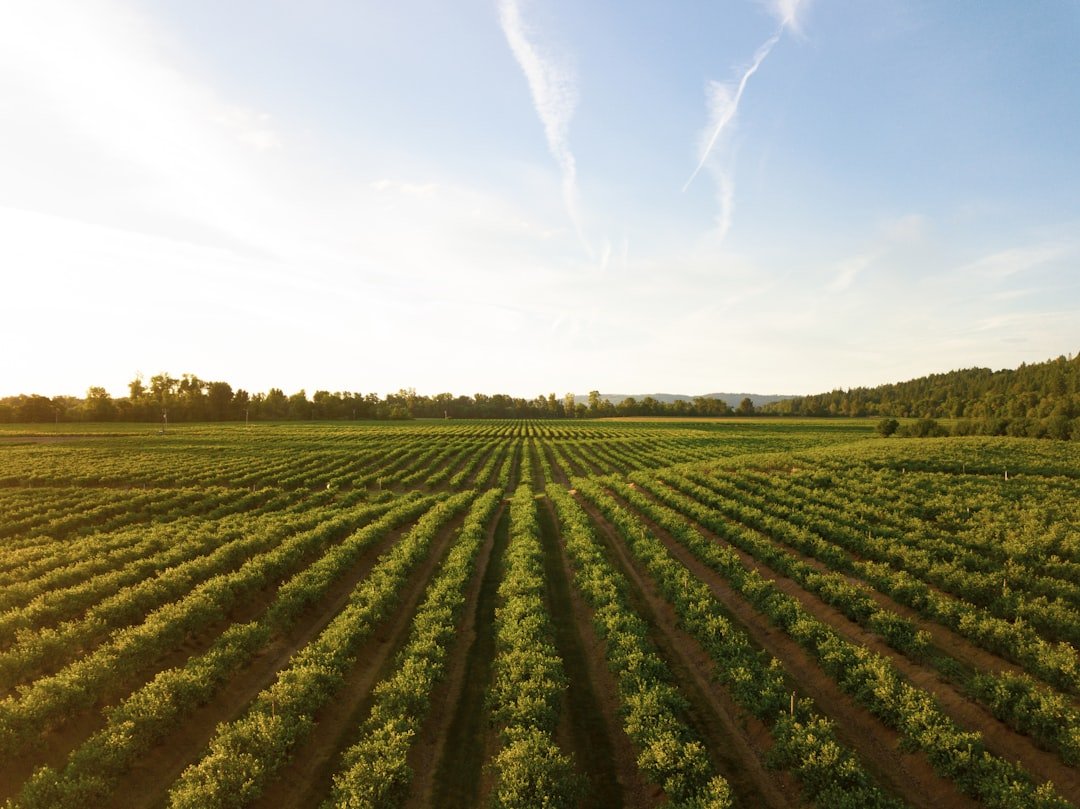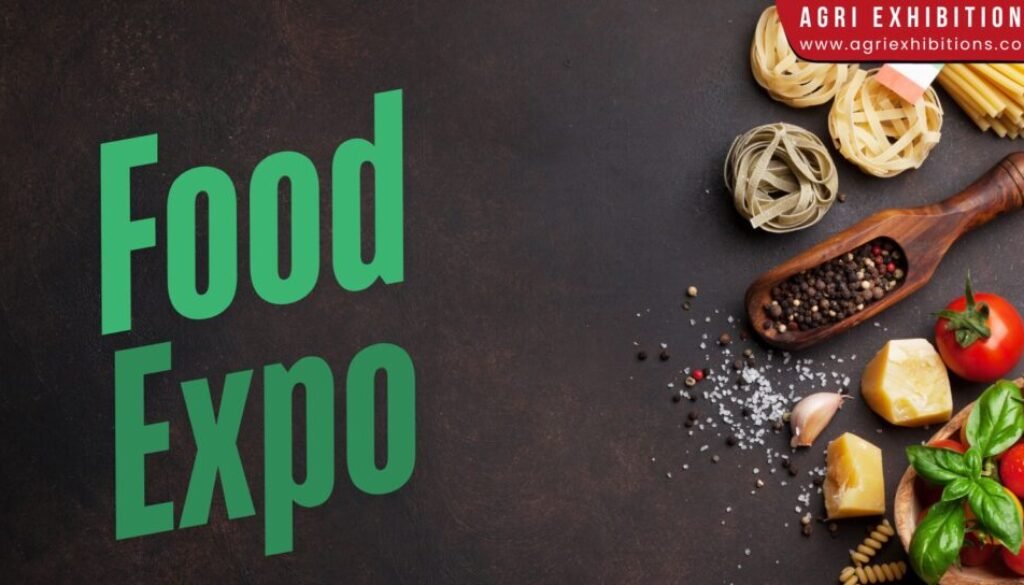Key Trends and Innovations to Watch at This Year’s Food Expo
Introduction
The world of food is constantly evolving, and this year’s food expo promises to be a feast for the senses, highlighting some of the most exciting developments in technology, horticulture, and agriculture. As we dive into a realm of groundbreaking innovations, it’s clear that these trends have the potential to revolutionise the way we understand and interact with food. From cutting-edge farming techniques to sustainable food production, join us on a journey to explore what’s on the horizon for this dynamic industry. Here’s a sneak peek at the trends and innovations shaping the future of food!
Emerging Technologies in Agriculture

As we dive into the vibrant world of this year’s Food Expo, technology in agriculture is a highlight that promises to reshape how we produce food. The agricultural scene is buzzing with innovations aimed at boosting efficiency, reducing costs, and promoting sustainability.
Precision Farming Tools
Precision farming is undoubtedly a buzzword these days, and for a good reason! At the expo, you’ll encounter sophisticated tools that help farmers make accurate decisions. These tools leverage technology to gather data on soil moisture, temperature, and even plant health. Imagine drones zipping across fields, equipped with multispectral cameras that provide real-time data. Farmers can now apply the right amount of fertiliser or pesticide only where it’s needed, minimising waste and environmental impact. Not to mention, precision tools can help maximise crop yield, ensuring that farming is both productive and sustainable.
Internet of Things (IoT) in Farming
The Internet of Things is transforming homes and offices, and now it’s doing the same for farms. IoT-enabled devices are being showcased as part of a new era in agriculture. Imagine a network of smart sensors across a farm, all communicating with each other to monitor environmental conditions. At the Expo, you’ll see sensors that can predict weather changes, monitor cattle health, and even track crop growth. With the integration of IoT, farmers gain a holistic view of their operations, allowing them to make informed decisions with real-time data. This connectivity brings precision agriculture to a new level, making farming smarter and more efficient.
Artificial Intelligence and Machine Learning Applications
Artificial Intelligence (AI) and Machine Learning (ML) are no longer the stuff of science fiction. They’re very much here, and they’re redefining agriculture. At the Food Expo, you’ll find applications of AI and ML that help in forecasting crop yields, identifying disease outbreaks, and even optimising supply chains. In essence, these smart algorithms can learn from vast datasets, offering insights that guide decision-making. For instance, AI-powered robots can assist in harvesting crops, while ML algorithms ensure that the produce reaches markets at the peak of freshness. It’s an exciting time where technology merges richly with tradition, bringing unprecedented precision and efficiency to agriculture.
Sustainable Practices
In a world increasingly conscious of its environmental footprint, sustainable practices in agriculture take centre stage at the Food Expo. From organic farming to water conservation, there’s a concerted effort to ensure that food production is kind to the planet.
Organic Farming Innovations
Organic farming has long been synonymous with sustainability, and the Expo introduces new methods and products that take it a step further. You’ll find natural fertilisers made from composted food waste, as well as biological pest controls that replace chemical pesticides. These innovations offer farmers tools to maintain soil health and biodiversity. Additionally, advancements in crop rotation strategies and polyculture, where diverse plants grow side by side, help build ecosystems that are resilient to pests and diseases. By integrating these new practices, organic farming continues to provide healthy food options while nurturing the environment.
Water Conservation Techniques
Water, the lifeblood of agriculture, is a precious resource that needs careful management. The Expo showcases cutting-edge water conservation techniques designed to reduce water waste and promote efficiency. Drip irrigation systems, which deliver water directly to the plant roots, minimise evaporation and runoff, ensuring that plants receive the correct amount of moisture. There’s also technology like moisture sensors that inform when and how much to water, preventing over-irrigation. These techniques not only save water but also improve crop yields, highlighting the importance of resourceful farming methods in our changing climate.
Waste Reduction Strategies
Reducing waste is another critical focus at this year’s Expo. Innovative strategies are being presented to minimise waste throughout the agricultural process. For example, food by-products, once seen as waste, are being transformed into valuable resources. Technologies that convert agricultural waste into bioenergy or compost are setting new standards. Furthermore, advanced packaging solutions designed to reduce spoilage and extend shelf life play a crucial role in reducing food waste. These strategies underscore a shift towards circular economies in agriculture, where every output is repurposed or reused, ensuring minimal loss and happier planet.
The Food Expo offers a glimpse into the future of agriculture where technology and sustainability beautifully intertwine. These innovations and trends are not just about improving efficiency—they’re about reshaping the way we think about farming, ensuring that it meets the needs of the present and the future harmoniously. As we celebrate these advancements, it’s inspiring to see how they pave the way for a healthier planet and a robust food system.
Advances in Horticulture
The world of horticulture is bustling with activity as it embraces innovation to meet the ever-growing demand for sustainable farming practices. This year’s food expo highlighted some key advancements that promise to revolutionise the way we grow and consume our food. Let’s delve into the groundbreaking trends that are shaking up the horticultural scene.
Vertical Farming Systems
Have you ever imagined growing a field’s worth of crops in a single multi-storey building? Vertical farming systems are turning this vision into reality. These systems maximise limited urban space by stacking layers of crops on top of each other, often in controlled environments.
– Space efficiency: By going vertical, farmers can produce a larger yield on significantly less land.
– Reduced water usage: Thanks to closed-loop systems, vertical farms use up to 95% less water than traditional farming.
– Consistent quality: The controlled environments significantly decrease the impact of weather variations, pests, and plant diseases, ensuring a steady supply of high-quality produce year-round.
This farming method reduces the carbon footprint by localising production, thereby cutting down on the need for transportation and storage. More and more entrepreneurs are investing in this technology, aiming to build farms right in the heart of our cities.
Hydroponics and Aquaponics
Modern horticulture is no longer just about the soil. Hydroponics and aquaponics are gaining traction as innovative farming techniques that go beyond traditional soil cultivation.
– Hydroponics: This soil-less cultivation method grows plants in a nutrient-rich water solution. By doing so, it offers several benefits:
– Faster plant growth and higher yields.
– Optimal nutrient delivery as plants are directly fed with essential minerals.
– Flexibility to grow crops in environments where soil conditions are poor or non-existent.
– Aquaponics: This hybrid system combines aquaculture (raising fish) with hydroponics, creating a symbiotic environment where waste produced by fish supplies nutrients to plants. In return, plants help purify the water, which is recirculated back to the fish tanks. Major advantages include:
– Sustainable production, as it essentially turns waste into valuable resources.
– Minimised water usage due to the recirculating system.
– The opportunity to produce both fish and vegetables in a single system.
These techniques exemplify how technology can bring sustainability to the forefront of food production.
Enhanced Crop Varieties
At the heart of horticultural innovation are enhanced crop varieties that promise improved resilience and productivity. Thanks to modern breeding techniques and biotechnology, new varieties are being developed to thrive under diverse conditions.
– Disease resistance: Selective breeding has led to plants that can withstand attacks from pests and diseases more effectively, reducing the need for chemical treatments.
– Climate adaptation: As climates change, crops are being engineered to endure extreme weather, such as droughts or floods, ensuring food security even in challenging environments.
– Nutritional enhancement: Scientists are also working on boosting the nutritional profiles of crops, enriching them with vitamins, minerals, and antioxidants to support healthier diets.
These breakthroughs ensure that farmers can produce more with less, ultimately easing the pressure on our planet’s finite resources.
Future of Food Production

Peering into the future of food production reveals a landscape ripe with potential and promise. The collaborative efforts of scientists, farmers, and tech innovators are driving forward-thinking practices that could redefine our approach to agriculture.
– Precision farming: Technology is increasingly playing a pivotal role in agriculture. Drones, satellite imagery, and IoT sensors are being used to monitor crops and optimise resource use. Real-time data allows farmers to make informed decisions about when to water, fertilise, and harvest, minimising waste and maximising yield.
– Biodegradable packaging: Sustainability doesn’t stop at production. The future calls for reducing waste at the consumption level too. Innovative materials made from plant-based sources are being trialled to pack produce in environmentally-friendly ways.
– Lab-grown proteins: With the rise of plant-based and cultured meats, the landscape of protein production is evolving. These alternatives promise to reduce the environmental impact caused by traditional animal farming practices and cater to a growing demand for ethical meat options.
In essence, the fusion of traditional agriculture with cutting-edge technology is paving the way for a future that can feed the world while protecting our natural resources. As we hold the reins to this agricultural revolution, it’s imperative to embrace and support these innovations, for they are the keys to a sustainable future.
Conclusion
This year’s food expo was a treasure trove of exciting trends and innovations poised to redefine the future of agriculture and the culinary world. From technological advancements like AI-driven farming solutions to sustainable practices in horticulture, the event showcased it all.
Key takeaways include:
– The rise of smart farming tools that enhance crop yield.
– Innovations in plant-based foods catering to health-conscious consumers.
– Eco-friendly packaging solutions that are both practical and sustainable.
These innovations promise not only to revolutionise how we produce and consume food, but also to contribute to a more sustainable planet. As we move forward, keeping an eye on these trends will undoubtedly be crucial for anyone invested in the ever-evolving food landscape.


